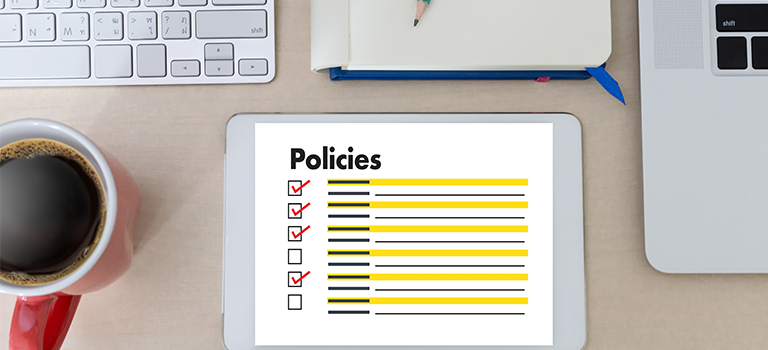You Didn’t Read the Privacy Policy?!
The privacy policy is the single most important document governing the guidelines around which a VPN functions. However, it has almost become a ritual to not read it. Everyone knows that it’s there but no one actually reads it, except for a few cybersecurity geeks and VPN reviewers. Unfortunately, that has giving rise to scams and data violations.
Simply put, the privacy policy of a VPN service is where the provider puts down all the details of how the VPN is being operated. It contains info on the provider’s logging policy. Additionally, it contains information on exactly how the app uses your data. Nearly all VPN providers have their own privacy policy. They put the link to it on the bottom of their web pages. So why are not people reading it?
Why Skip it?
That’s probably because of two main reasons. Firstly, the link to read the document is definitely there on each page of a provider’s website. However, it is so small and inconsequential that you it is easy to ignore or even miss entirely.
VPNs will link blaring posters of their discounts, CTAs, and a number of servers offered all over their website. But then they keep the links to their privacy policy obscured at the bottom of the page. It is almost as if the intention is to ensure that people don’t go and read the privacy policy.
Secondly, the document itself is devoid of any sort of zing. It is a bland, boring, and worst of all, LONG document outlining policy regarding data collection and usage. Therefore, it is often unnecessary to read these policies. Not many have the patience to go through such a boring document. This is especially true when most policies contain the same redundancies.
Obscured Information
These two elements combine to ensure that the provider doesn’t get involved in any lawsuit for using data that the customer did not have the knowledge of. If the privacy policy is on that web page, the provider free reign to use the datam because they stated they would very clearly in the document.
This makes users vulnerable to all kinds of exploitation concerning data abuse. Users are unaware when VPNs siphon off with their data and start using it to their advantage by either selling it to advertisers or building a data mining network through it.
In recent years, many VPNs have advertised a zero logs policy. However, they were exposed when someone investigated their actual logging rules in their privacy policy. This kind of obscure language aims to frustrate consumers. In fact, many users are at great risk of being misled by false claims.
Not reading the privacy policy is one of the gravest security concerns in today’s online world. In fact, it is recommended that users actually start going through these documents. This is in order to ensure that they know exactly what they are committing themselves to.
The document is bland undoubtedly, but if it’s concerning your privacy and online safety, then you need to go through it. However, if you are not able to read them all, there are some red flags you can skim for.
Read the Privacy Policy When…
If a VPN is offering a deal that is too good to be true, it probably is to good to be true. This happens especially in the case when users are searching for Cheap VPNs. with cheap VPNs be sure to read the privacy policy as there is big chance that you might find something fishy.
Another major red flag is when a VPN does not have a good market reputation. Even worse is when a VPN does not even have a reputation at all. Small and obscure providers are often the ones that try to keep a low profile so that no major reviewers or geeks land there and expose their shady practices.
If you count on these tips, you will definitely be a step closer to achieving the best and the most secure VPN for protecting your anonymity and safety online.
Tags: Cybersecurity, Data, Data Storage, Policy, Privacy Policy, VPN


